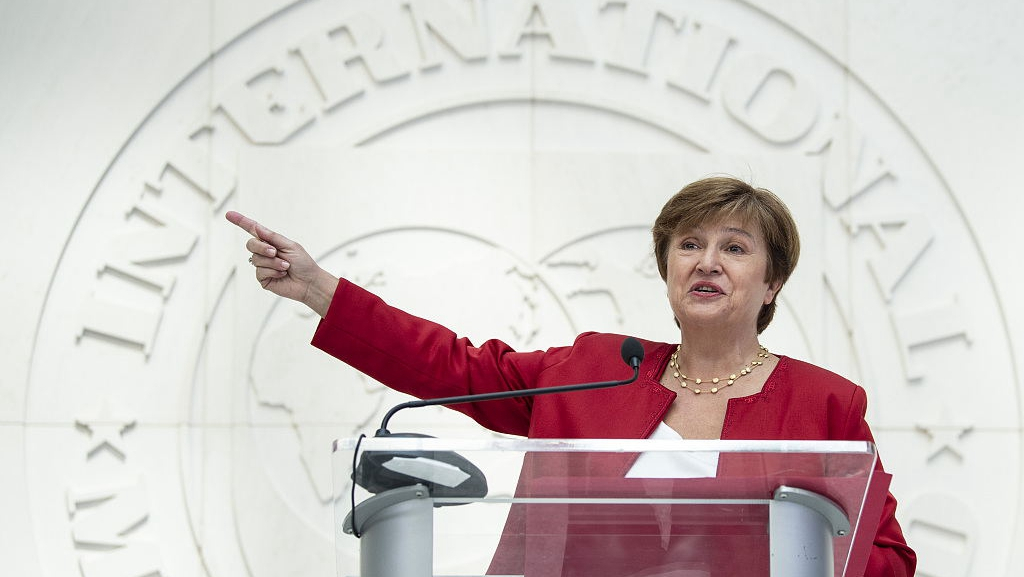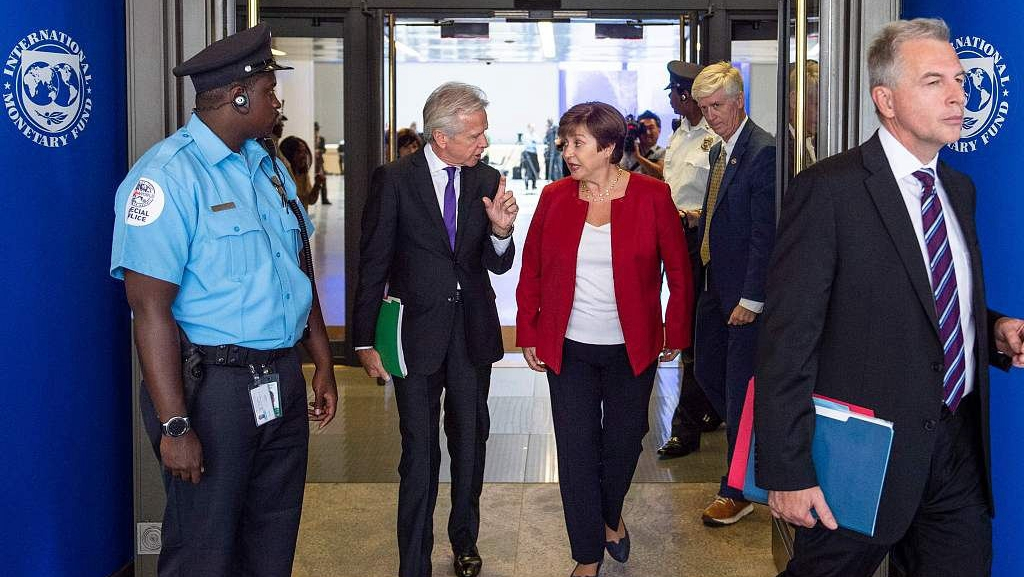
With little fanfare, economist Kristalina Georgieva has taken up duties as the first head of the International Monetary Fund (IMF) from an emerging nation.
On October 1, the Bulgaria native proclaimed in an in-house Twitter interview that her ultimate mission is to "build strong economies for better lives of people."
Georgieva is taking over for a five-year term as managing director at a time of global economic uncertainty that requires her to hit the ground running. Her inside knowledge of the multilateral financial architecture gives her a head start.
"It is a huge responsibility to be at the helm of the IMF at a time when global economic growth continues to disappoint, trade tensions persist, and debt is at historically high levels," she said in a statement a week before heading across the street from her previous job as chief executive officer of the World Bank.
The two Washington-based institutions have been at the heart of the world financial system since they were founded in 1944 though their roles remain rather opaque to many.
IMF fights financial fires
The World Bank has over time come to focus mainly on development and reducing poverty. Georgieva's more than 17 years of association with the bank, the last two or so as CEO, should therefore have prepared her for the criticism that has often been placed at the IMF's door – that its leading policies have tended to make poor countries poorer.
The IMF has taken on the function as lender of last resort to governments, fighting financial fires around the world. It provides loans to member countries in need of financing – most of which tend to request help when they are on their knees and are forced to accept bitter medicine – provides technical assistance and training to implement economic policies as well as monitors the global economy.

Kristalina Georgieva walks out of a news conference with IMF spokesperson Jerry Rice after she was confirmed as new managing director, at IMF headquarters on September 25, 2019, in Washington. /VCG Photo
Kristalina Georgieva walks out of a news conference with IMF spokesperson Jerry Rice after she was confirmed as new managing director, at IMF headquarters on September 25, 2019, in Washington. /VCG Photo
In an interview with the Wall Street Journal published on Thursday, Georgieva urged governments to make public investments or structural changes to spur growth before economic conditions weaken further.
In addition to the trade disputes, she mentioned Brexit, capital flow volatility, conflicts and natural disasters as issues that can cause massive economic disruptions around the world.
In the weeks following her election, Georgieva, who was nominated by Bulgaria for the position of United Nations secretary-general three years ago, signaled that the IMF would aim to be attentive to all members, big or small, in what could be seen as an acknowledgment of the institution's domination by rich nations.
Eswar Prasad, a Cornell University professor who is the former head of the World Bank's China department, was quoted as saying that Georgieva will need to "work on rebuilding the institution's legitimacy among emerging market economies."
She is credited with pushing for shareholders' consensus on a 13-billion-dollar capital increase and reform package at the bank last year that cut lending to wealthier developing countries and shifted more resources to poorer countries.
Appointment-making process rankles
Under the reforms which managed to secure the support of the Trump administration, lending to China and other wealthier developing countries will decrease, with more resources going to needier countries, according to Reuters.
Income inequality, the former European Union (EU) commissioner said on her first day on the job, is bad for everybody. "It is bad for people who are left behind but it is actually bad for those that may be rich and powerful because no society can prosper with huge divisions among its members."
Still, she has the baggage of having been chosen for the job at the multilateral lender by the EU, a historical anomaly that still rankles among developing nations as the appointments process leaves them on the sidelines. The upper age limit was even raised from 65 to accommodate the appointment of the 66-year-old.
Nevertheless, she carries her history-making nomination with pride, having replaced France's Christine Lagarde who was the first woman to run the fund. "Christine broke the gender glass ceiling and I'm very proud to have broken the glass ceiling for emerging markets as the first MD coming from that group of countries," Georgieva said.
She can create a legacy that is more than symbolic if she is able to recast the IMF as more receptive to the needs of emerging markets, particularly those which are highly indebted.
(Top image: IMF Managing Director Kristalina Georgieva. /VCG Photo)